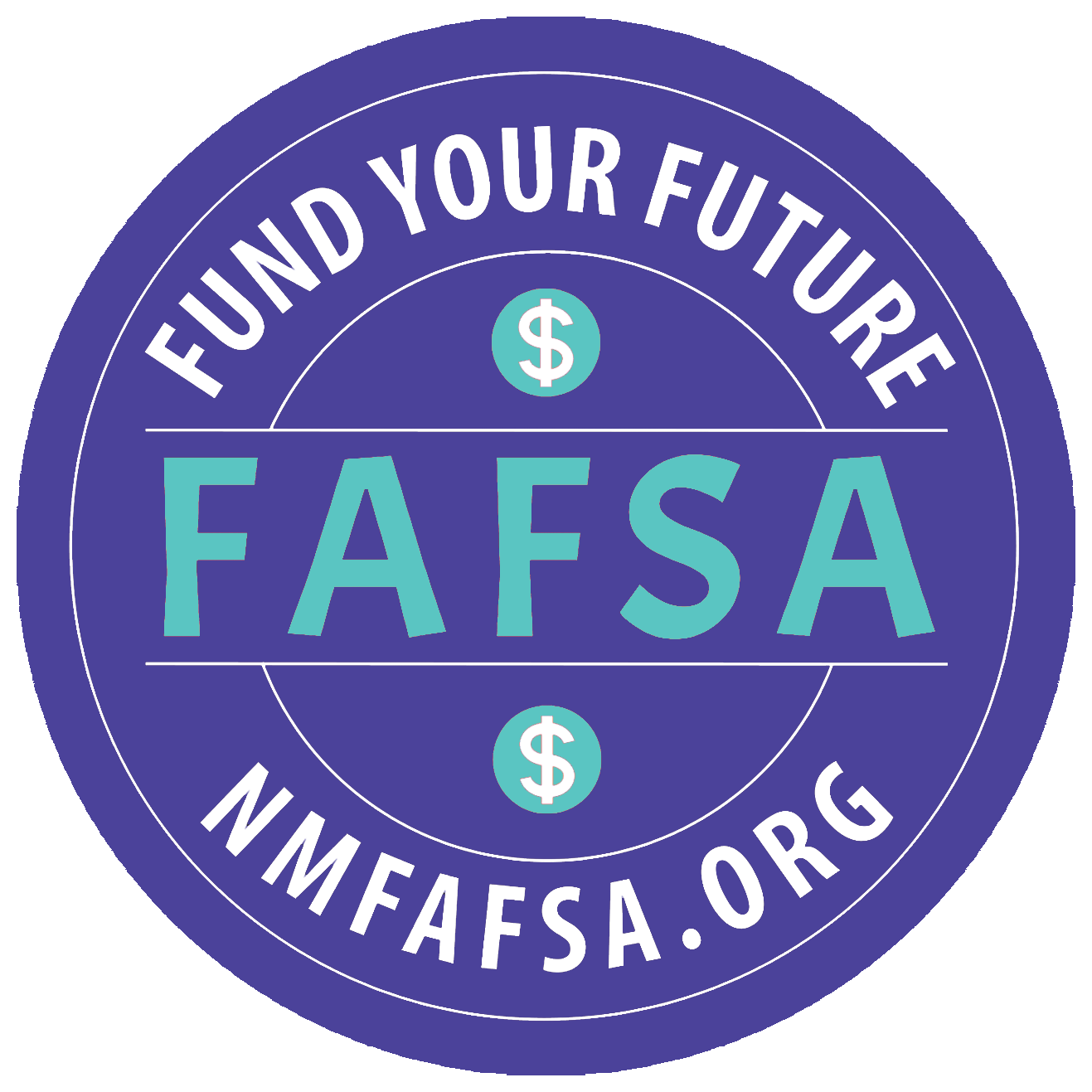
Plan & Pay for Education
What do you envision your future career to be?
There are many different paths to consider when shaping your future. Studies show that completing a higher education degree or certificate program can make a huge difference in how much money you make, what jobs are available to you, and your overall quality of life. We are one of the biggest advocates for higher education in New Mexico, whether that means you choose a junior college, university, or technical school, we are here for you. Here’s why we think you should pursue a higher education degree or certification.
FAFSA
Fund Your Future
The FAFSA is the #1 most important application for getting financial aid and the only way to get access to federal grants and federal student loans. Federal Student Loans have the lowest interest rates and the best repayment options.
Scholarships & Grants
Scholarships and grants are the best way to get free money for college as students do not need to repay these. Many schools also use the FAFSA to award grants, scholarships, and other financial aid. It’s important to submit the FAFSA as early as possible. Register for the $500 FAFSA Scholarship
Events & Workshops
NMEAF offers FREE FAFSA Workshops and events both in person and online. Mondays from 3-6 PM, students and/or parents can log in to our virtual help session, FAFSA Money Mondays. We have FAFSA experts available to help you complete the FAFSA and answer questions.
Higher Education Planning Tools
Find all the tools you need to plan for higher education. Learn how to select a college, university or trade school with links to all New Mexico schools. Find out what careers pay the most money and require higher education. We offer budgeting tips, and special programs for teachers, healthcare professionals, and military service members.
College Costs
Beyond tuition, see a list of all of the costs of attending school and learn budgeting tips to help you save.
Find a College
Links to New Mexico colleges, universities, and trade shows. Interactive college selection tools.
Career Planning
Interactive tools to help you learn about what career’s pay the most money and what careers require higher education.
Special Programs
Find special scholarships, grants, and programs for teachers, healthcare workers, and the military.
College Prep Timeline
College prep starts your junior year in high school and continues through your graduation.
Junior Year
September to October
- Research post-secondary schools and attend college fairs.
- Sign-up to take the PSAT (Preliminary Scholastic Aptitude Test)
Junior Year
November to March
- Research financial aid and scholarship opportunities and reach out to the Financial Aid Office at the colleges you’re interested in to see what they offer.
- Register, study, and take the SAT or ACT exam.
Junior Year
April to June
-
Inquire about college prep programs offered during the summer.
-
Schedule campus visits to schools that interest you.
Senior Year
September to March
- Visit with your guidance counselor to make sure you are on track for graduation.
- Submit your FAFSA as soon as possible.
- Attend financial aid/FAFSA workshops with your parents.
- Complete and submit all college admissions and scholarship applications.
- Register to take or re-take the ACT or SAT exams.
Senior Year
April to May
- Review acceptance letters and compare your financial aid award between schools.
- Ask your high school to send your official transcript to your college with proof of graduation.
- Sign up for freshman orientation and meet with academic advisors at your college.

